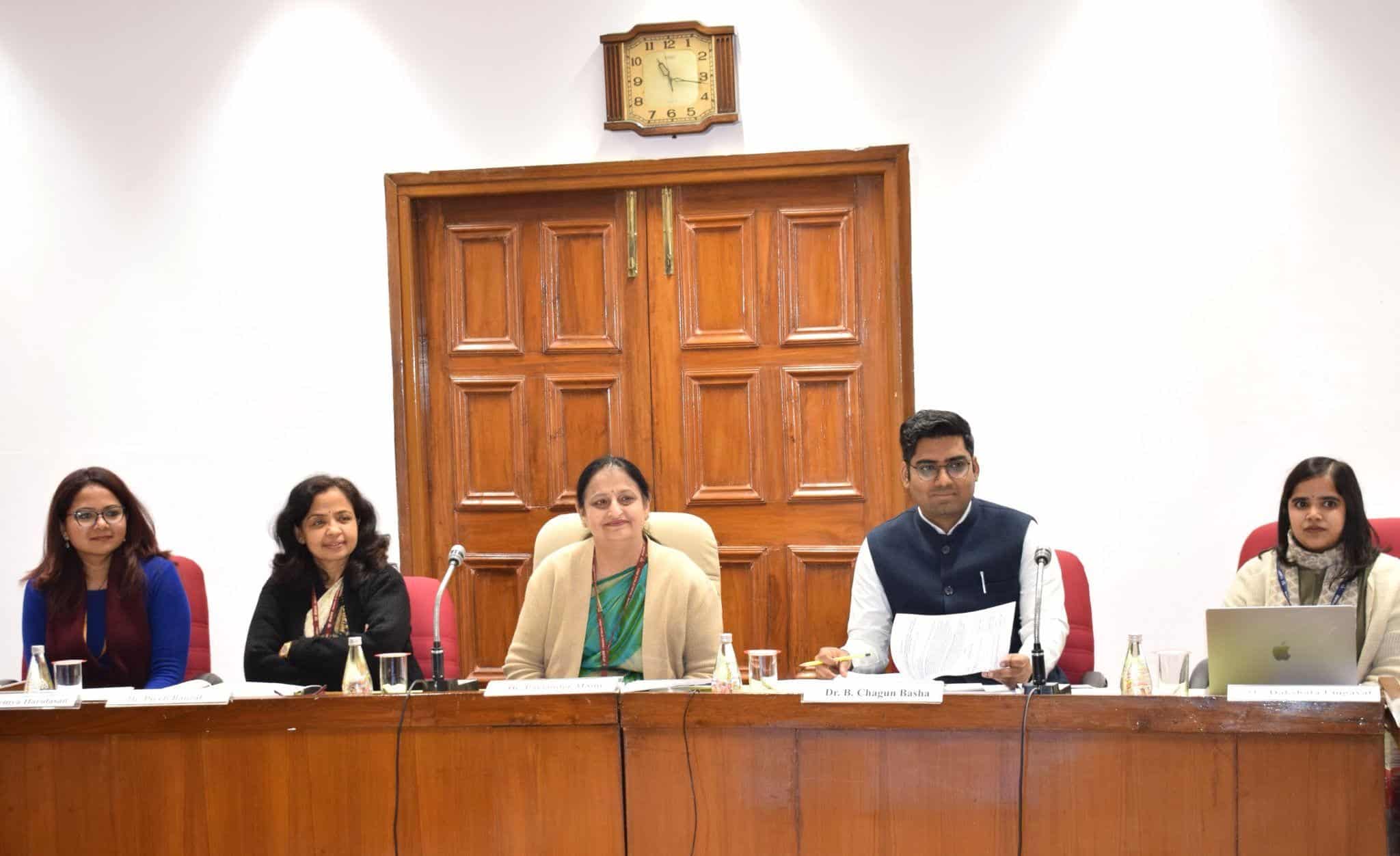Advancing Diversity and Inclusion in STEMM

The Office of the Principal Scientific Adviser (PSA) to the Government of India held an important expert consultation on January 8, 2025. This event took place at Vigyan Bhawan Annexe in New Delhi and was chaired by Dr. Parvinder Maini, the Scientific Secretary of the Office of PSA. The main goal of this consultation was to discuss a draft Self-Assessment and Reporting Framework (SARF) focused on Diversity, Equity, Inclusion, and Accessibility (DEIA) in the fields of Science, Technology, Engineering, Mathematics, and Medicine (STEMM).
The consultation brought together experts from various sectors, including academia, think tanks, civil society, industry, and government. They aimed to address the lack of disaggregated data on DEIA indicators, which has been a significant barrier to evidence-driven policymaking in STEMM. The DEIA-SARF framework seeks to assess and compile existing DEIA efforts in Indian STEMM organizations. It does this through five overarching parameters, marking a crucial step toward improving inclusivity in these fields.
Importance of DEIA in STEMM
In her opening remarks, Dr. Maini emphasized the critical role of DEIA in fostering holistic development, particularly in STEMM. She pointed out that India’s demographic diversity is a vital driver of socio-economic progress. Dr. Maini acknowledged various national initiatives, such as the National Education Policy and the Anusandhan National Research Foundation, which integrate DEIA principles.
She stressed the need for a systematic approach to DEIA in STEMM. This approach was highlighted during the 2023 G20 Chief Science Advisers’ Roundtable, which led to the creation of the DEIA-STEMM-SARF. Dr. Maini noted that this framework would support evidence-based policymaking through the collection and analysis of disaggregated data. She also underscored the importance of stakeholder consultations in shaping the framework’s finalization and implementation, ensuring that it meets the needs of all involved parties.
Framework Presentation and Expert Insights
During the consultation, the Office of PSA presented the DEIA-STEMM-SARF framework and its key parameters. These parameters include gender equity, support for historically underserved groups, and the promotion of diverse perspectives and knowledge systems. After the presentation, experts were invited to share their insights.
The experts highlighted the necessity of nuanced disaggregation of indicators within the framework. This would allow for a more comprehensive understanding of DEIA’s multifaceted dimensions. They also emphasized the importance of linguistic diversity, particularly in India’s multilingual context, as a critical aspect of accessibility. Furthermore, the experts discussed the interplay between technology and DEIA, noting that digital spaces can create new challenges for inclusion and access.
They urged that the framework should not only capture DEIA policies but also reflect institutional culture, including sensitization and the creation of affirmative spaces. The inclusion of outcome and impact indicators was also recommended to track progress effectively. The experts concluded that the framework should serve as an analytical resource, promoting institutional self-assessment and actionable strategies for cultural transformation.
Next Steps and Future Directions
In her closing remarks, Dr. Maini stressed the importance of customizing indicators for various stakeholder groups. She also highlighted the need for periodic self-assessment exercises to maintain momentum in DEIA efforts. Integrating intersectionality and public participation as essential process indicators was identified as crucial for the framework’s success.
Following this expert consultation, the DEIA-STEMM-SARF will undergo revisions before being presented to decision-makers. A potential pilot program with selected institutions is also on the horizon. Additionally, there are plans to develop a capacity-building module on the framework in collaboration with the Capacity Building Commission (CBC).
The discussion concluded with a call to amplify awareness of the government’s DEIA initiatives. This awareness is expected to enhance engagement and drive collective progress toward DEIA goals across the country. The commitment to fostering diversity, equity, inclusion, and accessibility in STEMM is a significant step toward creating a more equitable and innovative future for India.
Observer Voice is the one stop site for National, International news, Sports, Editor’s Choice, Art/culture contents, Quotes and much more. We also cover historical contents. Historical contents includes World History, Indian History, and what happened today. The website also covers Entertainment across the India and World.

